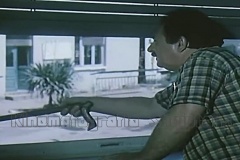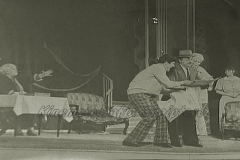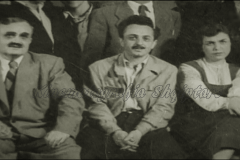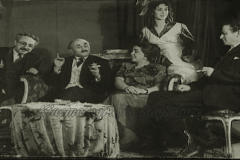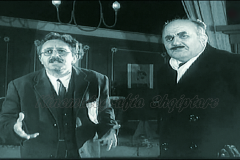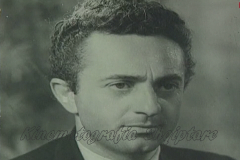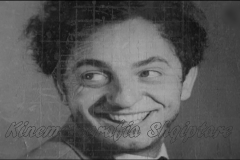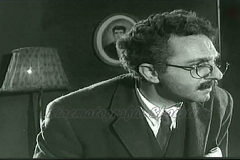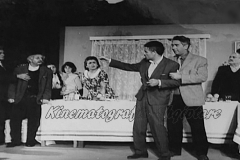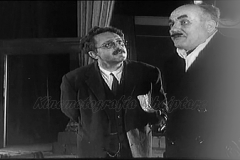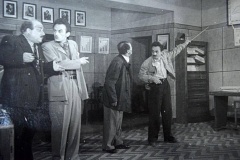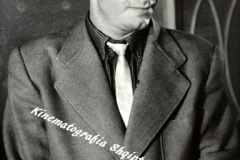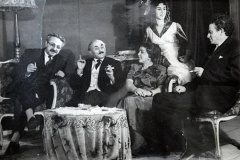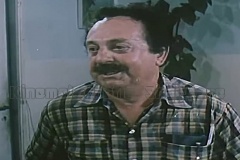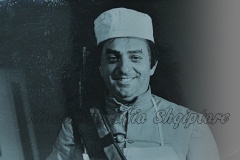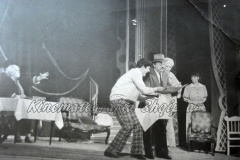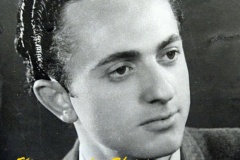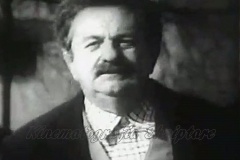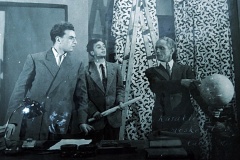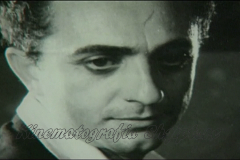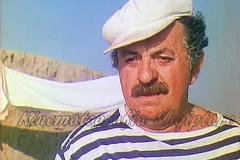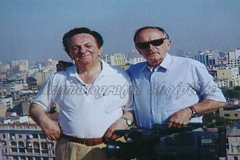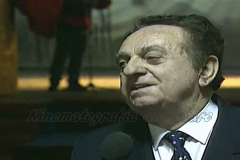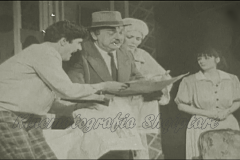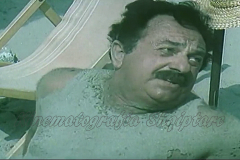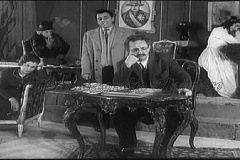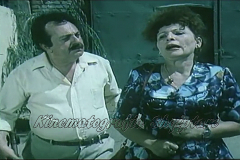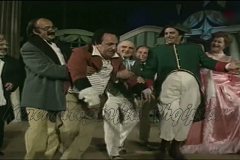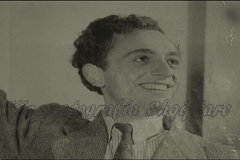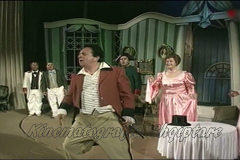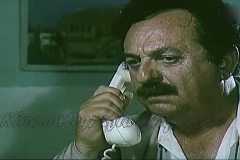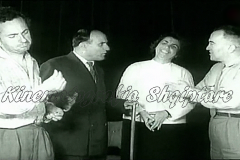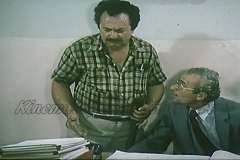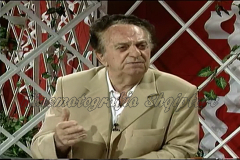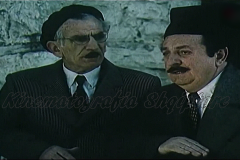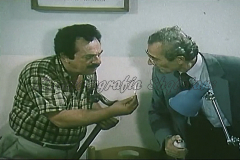Viktor Gjoka (1922-2007)
Actor / Director in the “Teatri Popullor”!
He was born in Peshta, Tepelene, on July 4, 1922. From the beginning, he stood out for his talent with the amateur movement of Tirana, which made him join the ranks as an actor with the “Teatri Popullor” in October 1946. In 1948, completed the Artistic High School in Tirana. He became known with the role of Khlestakov in the comedy “Revisory” (1952) by Gogol, directed by the Russian Kricko. In this role, Viktor Gjoka presented dexterity, a sense of humor, gestures of a plastic characteristic of the unscrupulous adventurer, of the cynical young man who took advantage of and made fun of the corrupt officials of the Russian government. In the comedy “Lost Letter” by Karajale, he interpreted the role of Pristado, to arrive further on in another character, of the “commedia dell’arte” type, interpreted in a free manner and with many interpretive breaks, as he the servant in Goldoni’s comedy, “The Servant of Two Masters” (1956).
In the period 1957-1961, actor Viktor Gjoka completed his higher studies for directing theater and cinematography in Baku, Azerbaijan in the former Soviet Union. In the 60s, he reached the highest levels of his acting with two roles, which remain as well-deserved achievements and experiences on a national level, such as the role of Nikollaq Jorganxhi in the comedy “Carnivals of Korce” by Spiro Comora in 1964, and the role of Halil Shkoza in the satirical drama “Second Face” by Dritero Agolli in 1968. With both of these roles, he won the first prize as “Best Actor” in the Theater Festivals held in years.
With the role of Nikollaq, thanks to the use of comic contradictions, burlesque in the interpretation of the character’s vocabulary about the value of money, thanks also to the sharpness of the pointed eye and the identification of a curmudgeonly man, the actor emphasized the degrading power of the vice of greed for money of the rich man, who brings out the “humane” character of his plight as a parent and makes comic the “suffering” for the negligible loss of the unmarried daughter’s dowry. Quite another is the example he brought through the portrayal of Uncle Halil, where the apostate actor has mixed findings that come from the arsenal of expressive means of theatrical folklore, from the popular spirit of the character itself, from the wealth of verbal intonations of South Albania, from the localization of the dress, from the comic expression of the portrait with long mustaches, placed crookedly, with the horse’s eyebrows, with the sarcastic way of speaking, etc.
In 1971, he left the social theater with punitive measures due to his second marriage. Especially, he did not stop working as an actor and director with the amateur movement, where he dramatized and staged, among other things, Shefqet Musarai’s poem “The Epic of the National Front” under the title “Karavidhet” in 1971. In 1972, returned to The Youth Theater, performed an interesting role, with a beautiful grotesque cut, Ivan Ivanovic in V. Mayakovski’s comedy, “Banja” directed by Spahivogli.
For 15 years, he could not play on the stage of the theater, banned by the authorities, forced to do menial work. First at the “Autotractor” factory, then in Berzhite, Tirana, and then with the pioneer groups. Recently he came to the stage of the “Teatri Popullor” with the role of Spirake in the comedy “Titanic Waltz” by Mushatescu.
In 1990 Viktor Gjoka immigrated to Italy where he settled in Rome, the place where he changed his life on October 27, 2007. Also in Italy he founded the cultural association “Dea”, through which he promoted several artistic activities that talked about Albania, among them some documentary films. In Italy, he acted in two films “Metropolitan” and “Piazza di Spagna”. In 1994, he made an attempt to revive Klestakov in a new version of the “inspector” on the stage of the National Theater, now also as the director of the show, but without reaching its former levels.
He was an actor with an expressive, impetuous, changeable temperament. It was noted for the embroidery of genuine characters, with elements of a deep realism. Among his most successful performances in the theater we can mention: “Revisory”; “Merry Wives of Windsor”; “The Second Face”; “Carnivals of Korce”; “Waltz of the Titanic” etc.
He stood out for his humor even with the variety show of Tirana. Gjoka also performed in several Albanian films, such as “Women’s Substitute” (1987); “The historian and The Chameleon” (1988); “Student’s Father” (1988); “Who is the Killer” (1989); “Death of Man” (1992)
During his acting career, he won the title of “Best Actor” three times in theater festivals. He has been honored with the title “Merited Artist”
______________
Albanian Cinematography in activity since 2013
Reference: 1 – Albanian Encyclopedia, Theater and Cinematography (with corrections of dates) – Toena 2009 / J. Papagjoni / p. 170-171 2 – “60 years of the National Theater” 1945-2005 / 55 publishing house / F. Slatina / p. 55.
Follow us: Blog: https://albaniancinematography.blogspot.com/ Vimeo: Albanian Cinematography (vimeo.com) Facebook: https://www.facebook.com/ksh.faqjazyrtare Dailymotion: https://www.dailymotion.com/kinetografiashqiptareartisporti YouTube: https://www.youtube.com/channel/UCDRYQ5xCyGkfELm3mX8Rhtw
Discover more from Albanian Cinematography - Sport
Subscribe to get the latest posts sent to your email.

